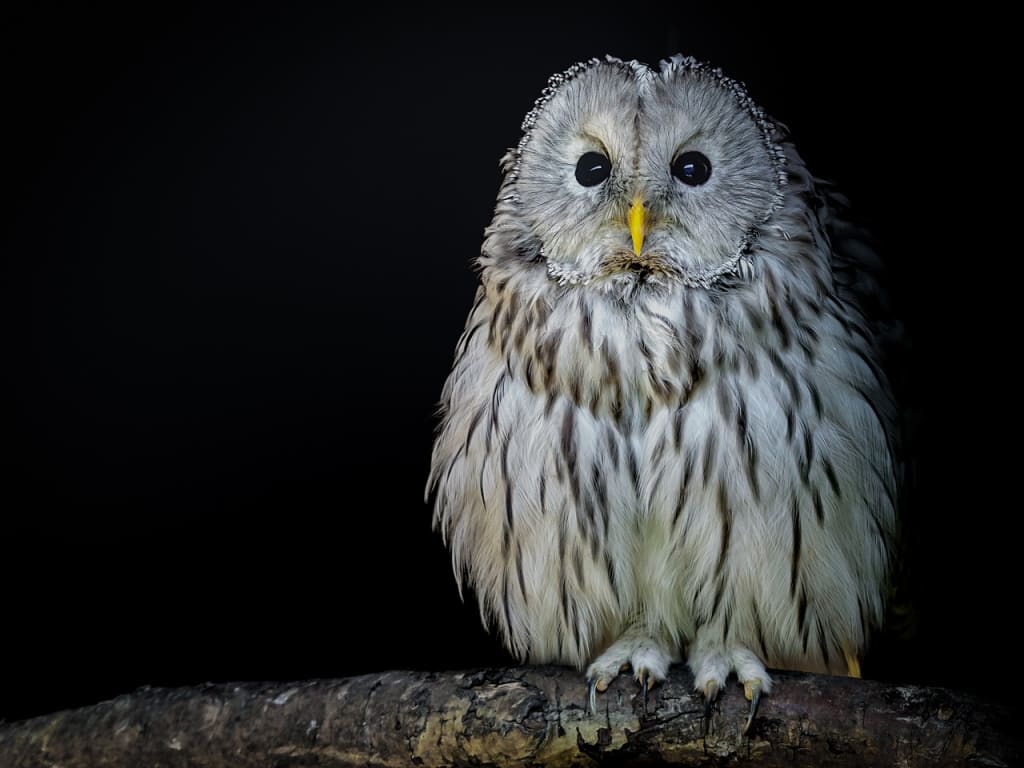The Night Owl
Night owls are a controversial topic as most people tend to think that night owls are lazy, stupid or even just stupid. So let’s look at facts.

1. Intro
Night owls are a controversial topic as most people tend to think that night owls are lazy, stupid or even just stupid. So let’s look at facts.
The first fact is that there is a correlation between the ability to fall asleep and how well you sleep. It has been found that the more sleep you get, the better your ability to fall asleep.
However, it should be noted that the sleeping time of an individual depends on their biological clock. Sleep phase disorder refers to an abnormality in the timing of sleep onset, which interferes with normal sleep patterns and circadian rhythms.
The second fact is that night owls are not inherently lazy or stupid; they just lack some other external stimuli that would make them go to bed earlier than most people do (e.g., restlessness).
The last fact is most likely related to cultural stereotypes: Night owls are more inclined towards ill-effects caused by stress on social relationships (such as jealousy) while those who never get up late have no such relationship with stress (e.g., fatigue) and instead prefer social interactions with friends, family or colleagues.
2. Night Owls vs Morning Larks
You’re no stranger to a late night. What does it really feel like?
Have you ever felt like you have to have a full day’s worth of work in order to rest on the weekend? Perhaps you can sleep in on Sundays, but you can’t on weekdays. Or, perhaps you’re unable to get an early start and take advantage of your weekends. Either way, this is not just an inconvenience; it is a dread that haunts most people at least some of the time.
This issue is called delayed sleep phase disorder (DSPD) and the symptoms are often described as those of insomnia (sleep problems) or hypersomnia (excessive daytime sleeping).
3. Why Early Birds Succeed
Some of the benefits of napping are that it improves concentration, reduces stress and helps the brain process information. There are also some sleeping habits that seem to help people get a better night's sleep.
Night owls tend to have a longer attention span than those who clam up in the morning. They also have more trouble falling asleep than those who wake up early in the morning. It is possible that sleep deprivation, lack of exercise and stress can all play a part in why many people who "catch" the "night owl" disease don't sleep well at night.
4. Night Owls and Academic Performance
A night owl is a person who tends to stay up late at night, or the early hours of the morning. Night owls who are involuntarily unable to fall asleep for several hours after a normal time may have delayed sleep phase disorder.
This is especially true in higher education. Students have a tendency to read during their early rising hours of the night. This can impact performance in various academic endeavors. Some studies conducted on this subject by Harvard University and Bowling Green State University indicate that students who tend to stay up later are less likely to achieve their academic potential; those students who spend the first half of their nights sleeping would be at their best performing their college work .
Another study emphasizes its importance in determining academic success.
5. How to be a Morning Person
The very first thought to come to mind when I think of night owls is the story of a young girl named Enid Blyton.
In her stories, she created a fictional world where only children were allowed to play and dream. She also wrote about the night owl’s various traits, like the ability to sleep in and wake up early.
With all these talents, this little girl became one of the most celebrated authors of her era. It was because of those qualities that she caught the attention of millions, especially parents who were concerned about their children’s sleep habits. And many have yet to stop reading her books today.
Not everyone can become a night owl. Some people naturally fall asleep as soon as they close their eyes and can get by without thinking or even needing an alarm clock. But if you are a person who doesn’t normally get enough sleep, you may have delayed sleep phase disorder (DSPD).
Sleep disorders can be brought about by any number of factors. If you suffer from insomnia, then you probably know what it feels like to go through sleepless nights and not feel like sleeping at all anymore. Sleep deprivation is also caused by habits that aren’t conducive to getting a good night’s rest — alcohol abuse, smoking or other drugs, high stress levels and so on — but there are other diseases which cause insomnia as well. Some people who suffer from insomnia do so naturally; others do not; some who sleep too much actually need more rest than others…
Whenever I hear someone talk about insomnia, I always ask them: What are you doing when you don’t feel like sleeping? What are you doing before bed? How long would it take for you to fall asleep if you tried? In addition to feeling tired already in the evening (I am sure that everyone has experienced this), sometimes we have problems falling asleep because we have too much anxiety or anxiety-related problems such as panic attacks or stress. Also there could be a problem with our breathing or our psychological state in general – sometimes we don’t feel like sleeping because our mind keeps on racing and we are afraid that if we shut down for a second then we will fall back asleep again…
When it comes to insomnia, not all people suffer from it equally — some people just don’t get enough sleep while others do so easily and still others act as if they were born with two hours worth of energy…
6. Conclusion
The night owl is one of the most fascinating and intriguing creatures in the animal kingdom.
They are responsible for a huge portion of the world’s gross domestic product. They are also responsible for about 90 percent of all bird sex.
Now, you may be thinking that night owls are just cool because they sleep late, but you wouldn’t know it if you had never seen them. Night owls tend to stay up late and work hard on their projects. They may not have time to do things like have fun and go out with friends into the evening, but they still have time to watch TV or play video games to keep their minds busy.
So, if you want to be a night owl yourself, as an entrepreneur or even an employee of a company that produces products, it is important that you learn how to be a night owl so that you can work at least part-time during the evenings. There are some tips and tricks for being a night owl so that you can work late into the nights without missing too much work:
1) If possible, try to go out when your body is already tired from sleep (or if your body doesn’t feel tired anymore). At least two or three hours before going to bed will help you get enough rest and fall asleep easier in bed. It may also help if it’s easier for you to fall asleep when your mind is at its most active and less stressed than when it is sleepy. This way, your mind won’t waste as much energy trying to fight off sleepiness and will give in more easily after having gone through several hours of stress-free relaxation time in order to fall asleep on time.
2) Do not rely on electronics during the evening hours — including televisions, computers, tablets or smartphones — unless they are essential for your work (if there isn’t electricity available). It can be really stressful being forced to turn off technology while working because something might go wrong with it or your mind might wander while doing so and cause another distraction during your working hours; this would only make things harder for yourself as well as others around you sooner or later because they cannot do their jobs without having access to these devices either! Besides this point, there are other reasons why people engage in distracting activities during the evening hours such as going out with friends or having fun outside by themselves – those activities should be done with full intention so that those activities don’t.





Comments
There are no comments for this story
Be the first to respond and start the conversation.